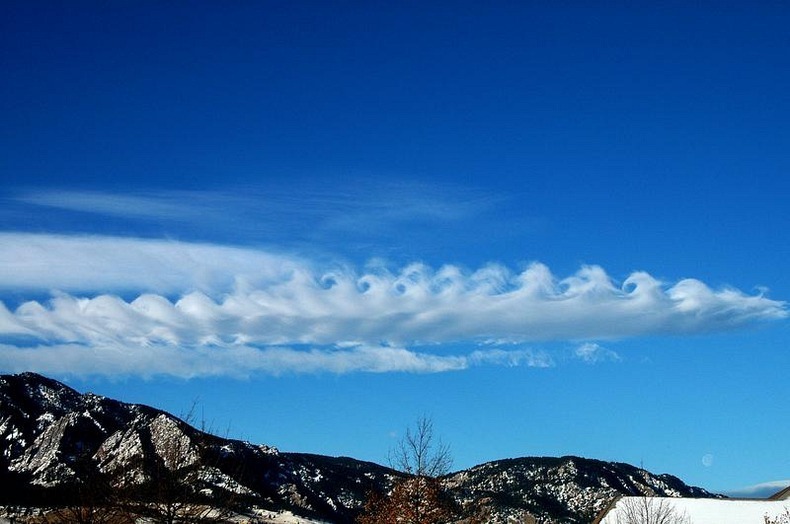Kelvin Helmholtz Clouds
Kelvin-Helmholtz clouds resemble waves breaking in the ocean.
These clouds are formed between two layers of air with different
densities and traveling at different speeds. If a warm, less dense layer
of air exists over a layer of colder, denser air, and the wind shear
across the two layers is strong enough, eddies will develop along the
boundary. Evaporation and condensation of the eddies render them visible
as wave shaped clouds. The cloud is named after Lord Kelvin and
Hermann von Helmholtz who studied the dynamics of two fluids of
different densities when a small disturbance, such as a wave, was
introduced at the boundary connecting the fluids. The Kelvin–Helmholtz
instability occurs not only in clouds but also in the ocean, Saturn's
bands, Jupiter's Red Spot, and the sun's corona.


Photo credit

Photo credit

Photo credit

Photo credit

Photo credit

Photo credit

Photo credit

Photo credit

Photo credit

Photo credit

Photo credit
Source consulted: Amusing Planet


Photo credit

Photo credit

Photo credit

Photo credit

Photo credit

Photo credit

Photo credit

Photo credit

Photo credit

Photo credit

Photo credit
Source consulted: Amusing Planet